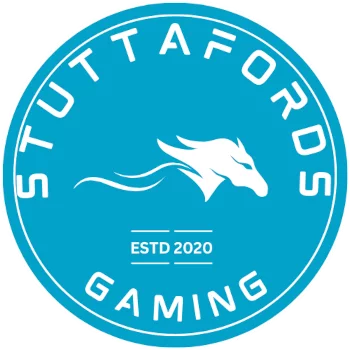
Before sleek platforms and international betting brands flooded South Africa’s online landscape, there was a quieter story unfolding in home offices and internet cafés across Johannesburg, Durban, and Cape Town. It’s a story rarely told, about the handful of local coders and tech entrepreneurs who, back in the late 2000s and early 2010s, were the first to stitch together the code that would bring betting apps to South African phone screens.
They weren’t the headline-grabbers or VC-funded startup darlings. Many of them operated under the radar, building scrappy apps for local casinos or early-stage online bookmakers just starting to navigate South Africa’s evolving gambling regulations. And yet, their fingerprints are everywhere, from the live-betting features on today’s major platforms to the simple EBT-inspired slot games that quietly dominate download charts in township app stores.
Sipho Mthembu remembers those early days well. Now a full-stack developer working for a fintech company in Cape Town, Sipho was just out of college in 2011 when he got pulled into a side project by a friend running a casino supply business. “He wanted an app for on-site sports betting terminals. Something basic, nothing fancy. I said I’d try.”
The first version ran only on a handful of BlackBerry devices, pulling odds from a local server and offering what Sipho now describes as “prehistoric UI.” It was buggy. The odds didn’t refresh automatically. Payments were handled manually through vouchers bought at the betting counter. “But people used it,” Sipho says. “We put it in a few places around East London and Joburg, and it caught on.”
That quiet demand triggered a wave of similar projects across South Africa’s growing tech freelancer scene. Mobile betting wasn’t new globally, but adapting it to South African realities, limited data access, old handsets, cash-driven transactions, was a challenge only local coders seemed willing to take on at first.
Most worked solo or in tiny teams. Ndumiso Khumalo, another early developer now based in Pretoria, recalls hacking together simple lottery apps that mimicked paper tickets. “Clients didn’t care if it looked slick,” he says. “They just wanted it to work on cheap Android phones. No glitches, low data use.” A big part of the job wasn’t even coding. It was navigating informal payment systems, figuring out how to let users deposit and withdraw funds through airtime credits, M-Pesa workarounds, or physical vouchers. “It was like building fintech before fintech became a word here,” Ndumiso laughs.
Most of these early apps are long gone. Their servers shut down, or they were bought up and absorbed into bigger platforms as global gambling brands muscled into South Africa’s digital space post-2015. But the code, and the thinking behind it, laid the groundwork for what’s now a major slice of the country’s online economy. For many of these coders, the work wasn’t glamorous. It didn’t lead to flashy IPOs or Silicon Valley careers. It paid the rent. It built portfolios. It proved what could be done on local terms.
 “There’s this myth,” Sipho says, “that all the big tech stuff comes from outside. America, Europe, China. But a lot of the apps South Africans use every day, whether it’s to bet R5 on a rugby match or spin a digital bingo reel, those apps have local DNA. Built by people like us, just figuring it out as we went.” That local DNA shows up in subtle ways. The way some apps load odds with just text and numbers, no big graphics, to save data. The built-in pause timers to help manage responsible gambling, introduced by local developers long before they were industry standard. Even the tone of in-app alerts, less flashy, more conversational, more recognisably South African in their language and pacing.
“There’s this myth,” Sipho says, “that all the big tech stuff comes from outside. America, Europe, China. But a lot of the apps South Africans use every day, whether it’s to bet R5 on a rugby match or spin a digital bingo reel, those apps have local DNA. Built by people like us, just figuring it out as we went.” That local DNA shows up in subtle ways. The way some apps load odds with just text and numbers, no big graphics, to save data. The built-in pause timers to help manage responsible gambling, introduced by local developers long before they were industry standard. Even the tone of in-app alerts, less flashy, more conversational, more recognisably South African in their language and pacing.
For some, that early experience in gambling tech became a springboard. A few former coders now work on major fintech projects, building payment rails or crypto platforms. Others stuck closer to the gaming world, consulting for larger betting companies now looking to fine-tune their platforms for South African audiences.
Yet, despite the impact, there’s little public recognition of these first-generation betting app architects. Their names don’t appear in glossy launch campaigns. Their faces aren’t on the websites. That’s partly because many operated in grey areas, building apps for companies that didn’t yet have full licences, or using open-source tools with blurred copyright lines. And partly, it’s because the South African tech narrative has always leaned towards bigger, louder, shinier headlines. But as mobile gambling continues to grow, especially in township and rural markets where data-light apps dominate, their legacy quietly endures.
It’s a kind of digital archaeology, digging through APK archives, revisiting old forums, finding half-forgotten GitHub repos that hold the raw bones of today’s platforms. The coders themselves don’t dwell on it too much. “It was just work,” Sipho shrugs. “But it was ours. Built for us, by us. That’s what matters.”
For readers familiar with South Africa’s iGaming space today, it’s worth remembering that behind the polished apps and multi-million-rand jackpots is a lineage of self-taught developers, hustling through night shifts and erratic Wi-Fi connections, shaping the future one line of code at a time.







